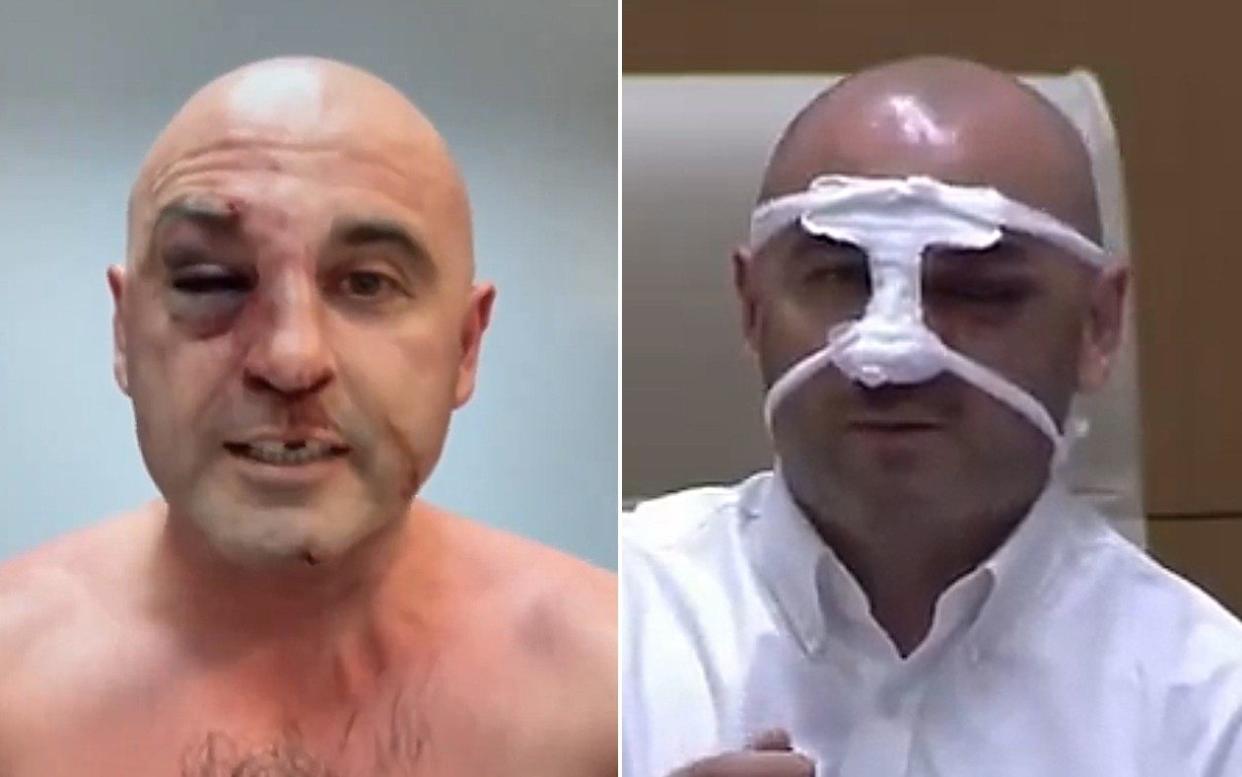Georgian opposition leader beaten by riot police after protests against ‘Russia law’

- Oops!Something went wrong.Please try again later.
- Oops!Something went wrong.Please try again later.
Georgia’s main opposition leader was beaten by security forces as he joined a pro-Western demonstration against the country’s new “Russia law”.
Levan Khabeishvili, who leads the United National Movement party, which is pro-Nato and pro-European Union, shared a picture of himself with a black eye, bloodied face and broken nose after a night of violent clashes between protesters and riot police in Tbilisi.
The politician alleged he had been kidnapped and beaten for opposing the ruling party’s “foreign influence” law.
He later appeared in the Georgian parliament, his face covered in bandages, to oppose the legislation, which critics say is modelled on Vladimir Putin’s oppressive regime.
“If someone thinks we won’t smile because we lose a tooth or can’t open our eyes, they are very mistaken. We will smile because Georgia will win,” Mr Khabeishvili told the chamber after being brought in in a wheelchair.
Aleksandre Darakhvelidze, Georgia’s deputy interior minister, said the opposition figure had “broken into the police cordon and resisted police to hinder their activities, receiving injuries as a result”.
Out of the clutches of Moscow
Thousands of Georgians have taken to the streets in recent months, draped in the white and red of their national flag and the blue and yellow of the EU, determined to keep their country out of the clutches of Moscow.
On Tuesday night, riot police fired water cannons, tear gas and launched stun grenades in a bid to quash a demonstration in the Georgian capital.
Josep Borrell, the EU’s top foreign diplomat, condemned the violent crackdown on protesters, describing it as “unacceptable”.
Brussels is closely watching the protest movement, which resembles the Maidan Revolution in Ukraine between 2013 and 2014, because Georgia is a candidate to join the bloc.
If the Bill becomes law, it would force media outlets, human rights groups and non-governmental organisations that receive 20 per cent of funding from abroad to register as an “organisation serving the interests of a foreign power”.
Its opponents argue that the law is inspired by similar legislation in Russia used to silence dissent.
The EU has warned that Georgia would face insurmountable barriers to join the bloc if the legislation is allowed to enter into force, essentially throwing the country back into the orbit of Moscow.

